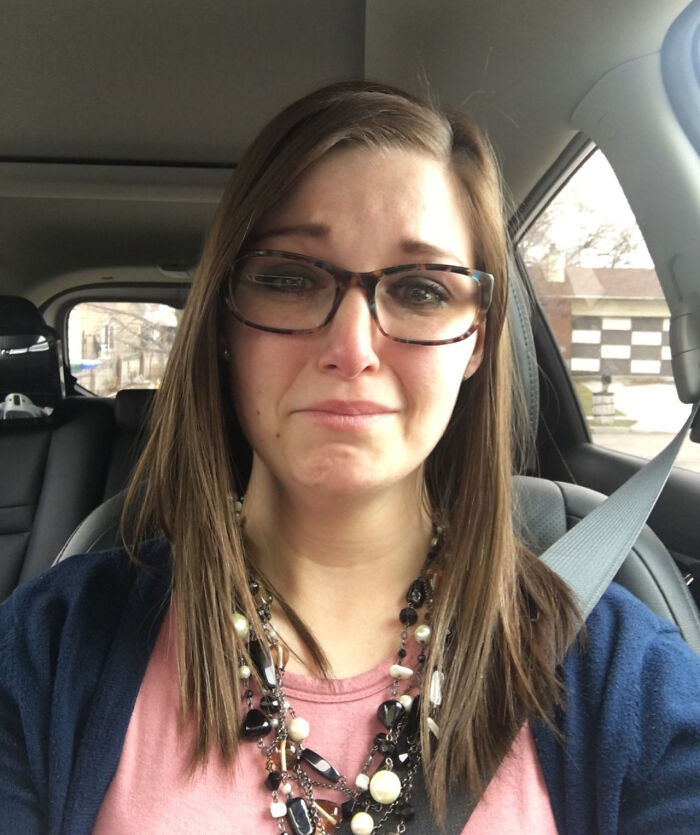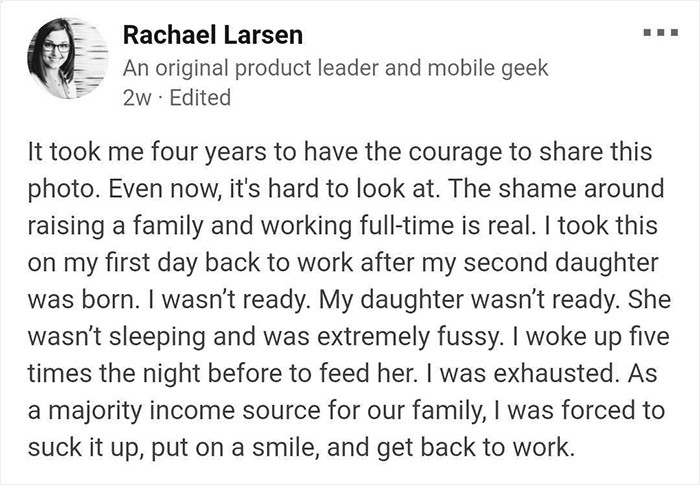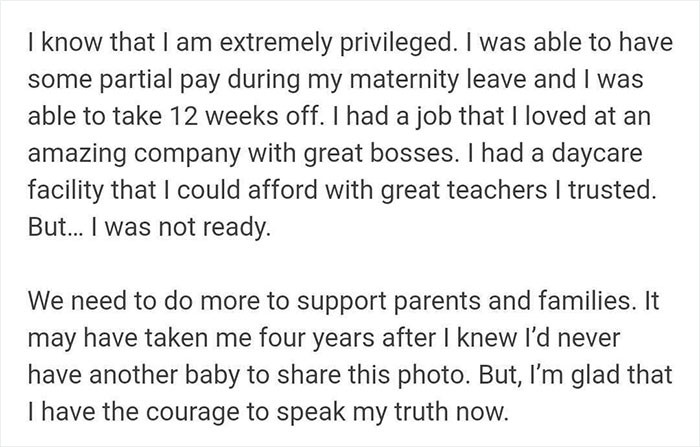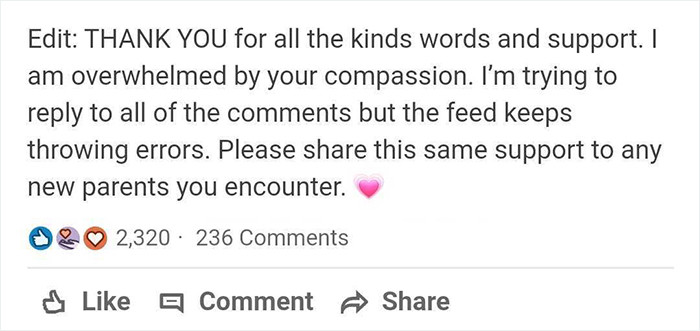Disappointed Mom Explains In Detail Why 12 Weeks Of Maternity Leave Isn’t Enough
Going back to work after maternity leave and leaving your baby is incredibly hard. And the US maternity leave policy isn’t making it any easier. With just 12 weeks of rest, the US is one of the worst among developed countries. For instance, many countries in Europe have a state-sponsored leave of 12 months, which can even be extended. All the while, new moms are receiving 100% of their previous salaries.
Rachael Larsen, a mom from the US, shared her story about going back to work. The post she recently shared on Linkedin refers to events from four years ago, but she simply did not have the courage and strength to talk about it then.
Rachael, a Salt Lake City education company executive, wrote: “The shame around raising a family and working full-time is real,” and added that “she wasn’t ready.”
Rachael Larsen shared a tearful confession on how she wasn’t ready to start working again after just 12 weeks of maternity leave
 Rachael Larsen
Rachael Larsen“It took me so long because I knew the default response from many people would be critical of my desire to be a career-loving mother. The pressure for women to fit in only one box is real and you can see it lived out in rude comments,” Rachael told the reporters.
 Rachael Larsen
Rachael Larsen Rachael Larsen
Rachael Larsen Rachael Larsen
Rachael Larsen“Returning to work after family leave might be one of the most difficult things you do, or it might bring you relief to feel like your old self. Every situation is different.” With Rachael’s first child, she started working after eight weeks. “It was a breath of fresh air for me to be able to take a break from the grueling work of caring for a newborn who wants to eat every two hours and cries non-stop.”
Many don’t speak about what they are going through during this period. “We don’t want to be viewed as weak or unable to manage the demands of our lives.”
Rachael says that “It is difficult to ask for help, especially when many companies only provide what FMLA requires and their corporate policies don’t allow them to provide more paid time off or flexible return options. For many managers, there is literally nothing they can do.”
Rachael’s story inspired others to share their experiences













People from other countries also shared their experiences:





“It’s no surprise that the parental leave in America is the worst of any developed nation. To break free from the individualist mindset of ‘pull yourself up by your bootstraps’ we will need a national change of heart where we acknowledge the value that families and communities provide to our country.”
Rachael thinks that “we need to value the humanity of our workers just as much as we value corporate profit. It doesn’t have to be one or the other; when the interests of both are balanced, you see companies thrive.”
But there was also some criticism:









To all parents out there who feel hopeless and unappreciated, Rachael says: “No matter how you feel about it, you are not alone. There are millions of parents out there working through the same emotions and guilt that you feel.”
A 2019 UNICEF report about the world’s wealthiest countries revealed that Estonia is the most family-friendly, with more than 80 weeks of leave and 100% pay. The US was at the bottom of the list, with zero weeks of state-sponsored leave.







